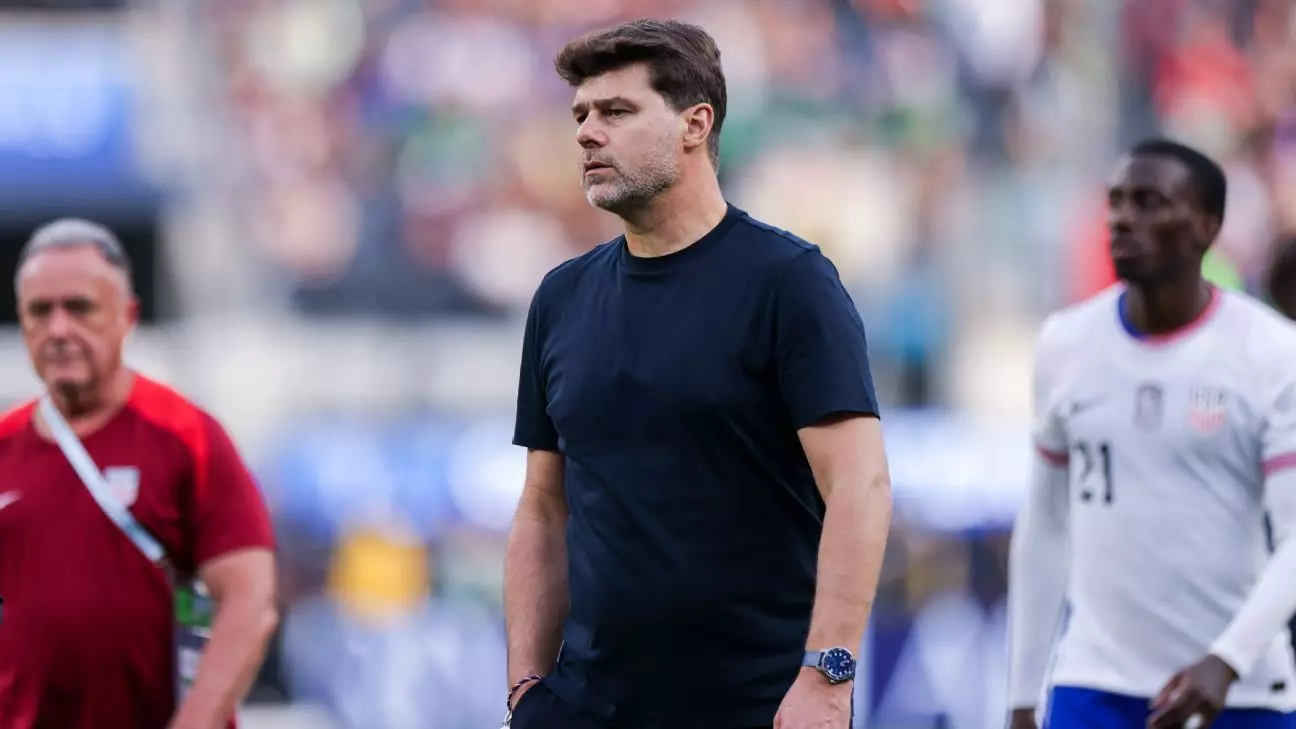In the world of sports, coaching is often viewed through the lens of cultural affinity and contextual understanding. Bruce Arena, the former head coach of the United States men’s national soccer team (USMNT), brought this issue into sharp focus when he criticized the appointment of Argentine coach Mauricio Pochettino. Arena argues that a coach without American roots may struggle to grasp the unique cultural nuances that characterize American soccer—a sentiment that echoes among many who wish to see the national team thrive on the international stage.
Pochettino, who took the helm in August as the USMNT aims to position itself favorably ahead of the 2026 World Cup, is not the first foreign coach to take on this role. However, Arena’s skepticism highlights an underlying tension in American soccer that raises questions about national identity, pride, and the efficacy of foreign leadership in shaping a domestic team. As Arena aptly points out, the common practice among national teams is to appoint a coach who possesses an intimate understanding of the country’s soccer culture and ethos.
The Historical Context of Foreign Coaches
Historically, the USMNT has seen a variety of foreign figures in coaching positions—from German Jurgen Klinsmann, who led the team from 2011 to 2016, to Serbian Bora Milutinović during the 1994 World Cup—each bringing their philosophies and management styles. While these appointments have had varying degrees of success, Arena’s argument rests on the premise that familiarity with American soccer—its challenges, pride, and the emotional weight carried by fans—can only be truly understood by someone who has lived and breathed the culture.
While it’s easy to argue that great coaches can thrive in any environment, the stark realities of international competition suggest otherwise. Unlike club soccer, where a coach builds a team over several seasons, a national team coach must quickly blend talents and egos into a cohesive unit. The essence of American soccer is intricately tied to its ongoing evolution, shaped by diverse player backgrounds and the ever-growing influence of Major League Soccer (MLS). A non-American coach might find it unnerving to navigate this tapestry of identities.
Concerns About the Team’s Mentality
Pochettino’s recent remarks about the squad’s mentality are concerning, especially given that the USMNT’s form has been less than inspiring. The lackluster performances in the most recent Concacaf Nations League Finals emphasize a troubling trend. The team fell not only to Panama but also faced defeat against Canada, shocking many fans and analysts alike. It’s one thing to possess talent, and another to express it on the pitch when history and pride weigh on players’ shoulders. Arena’s critique implies that a lack of cultural insight may hinder Pochettino from fostering a winning mentality, which is vital when heading into prestigious tournaments.
Arena’s views echo tensions that exist within the larger framework of U.S. soccer—a mix of optimism and skepticism rooted in the nation’s attempts to find its footing in a sport that seeks to grow domestically while competing internationally. The recent results cast a long shadow over Pochettino’s management and raise legitimate questions about whether the right connections to American soccer—its fans, history, and idiosyncrasies—are being made.
The Road Ahead: Navigating Critical Times
As the countdown to the 2026 World Cup continues, the upcoming year will be crucial for the USMNT. Arena’s mixed tenure with the team—marked by both successes and failures—reveals how fragile the line is between promise and disappointment. The looming shadow of the 2018 World Cup failure under Arena during his last spell indicates the importance of careful planning and cultural alignment to navigate challenges effectively.
Arena has openly conveyed his concerns about the readiness of the current squad to compete at the highest level. A year on the calendar may seem sufficient, but international soccer evolves at a frenetic pace. Assessing talent should be more than just statistics; it needs an understanding of the emotional and psychological context—qualities that can only be grasped by someone immersed in the U.S. soccer landscape.
Instead of focusing solely on tactical excellence, the needs of American soccer prioritize an emotional connection with the coach—a connection built on a shared identity and vision. If Pochettino fails to establish that rapport, he risks not only the immediate future of the USMNT but also the long-term aspirations of American soccer’s legacy.

Leave a Reply